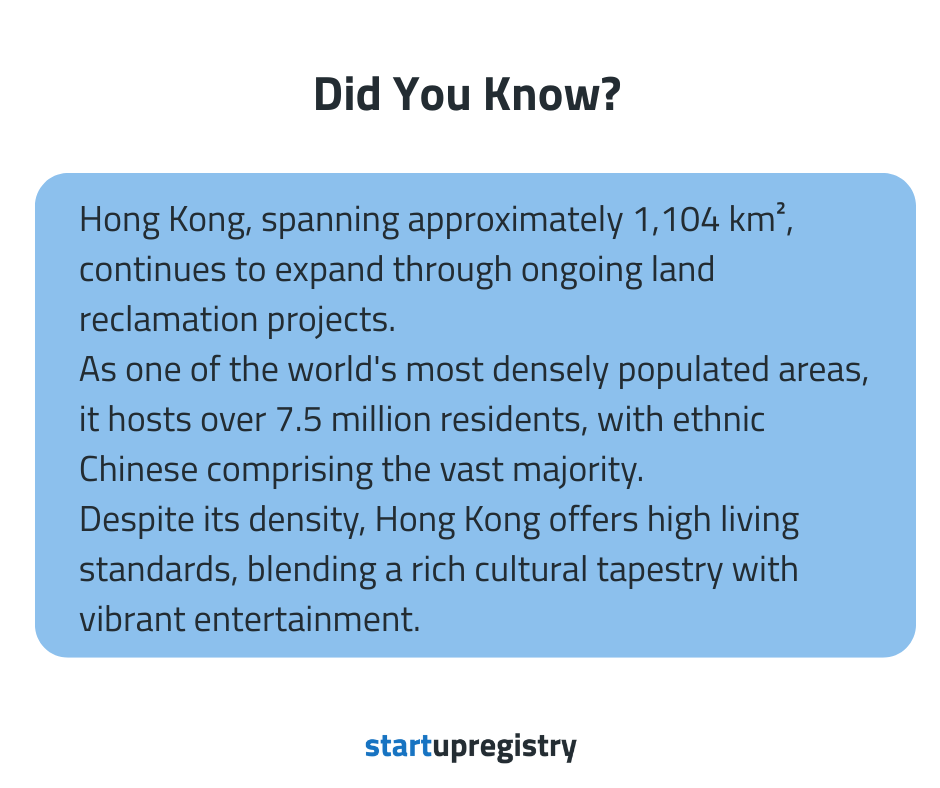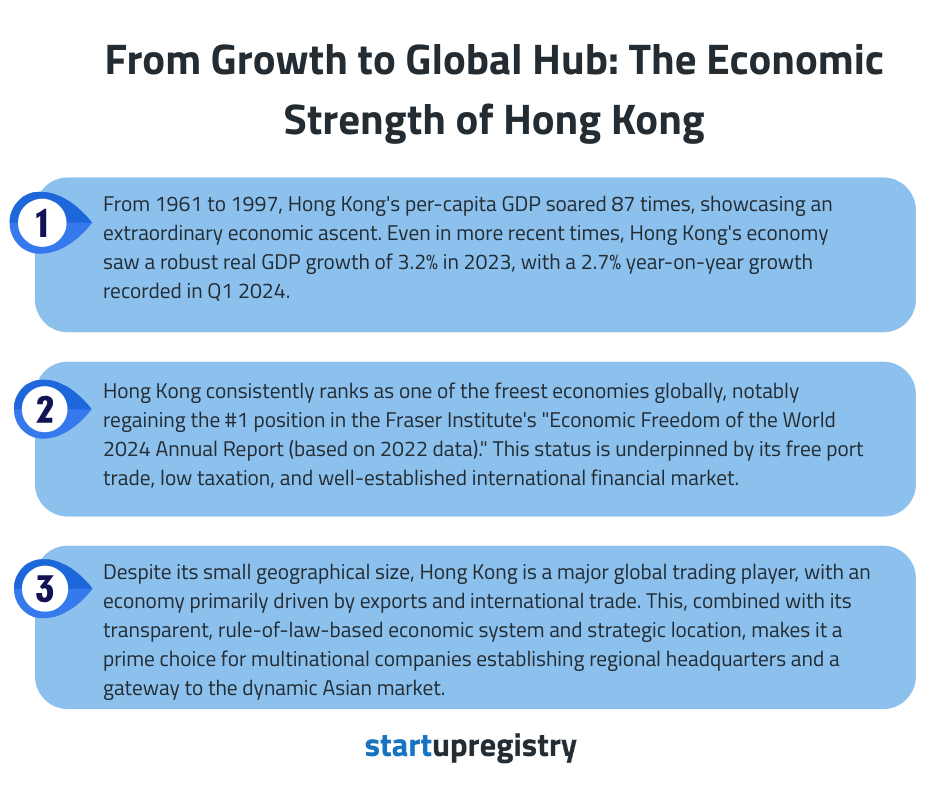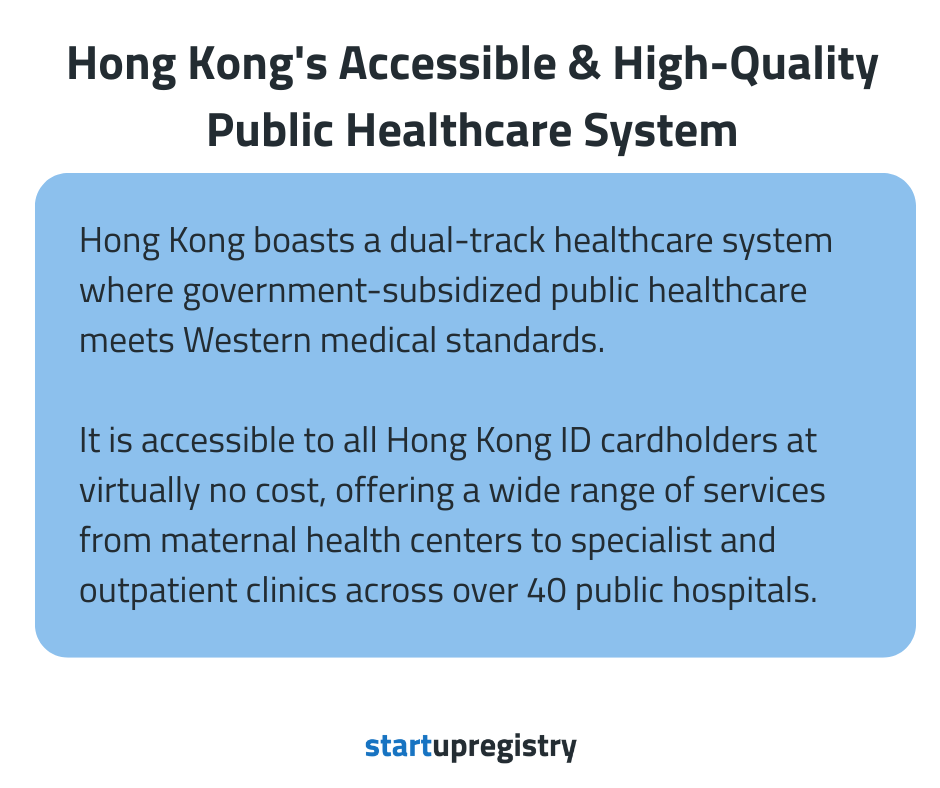Living and working in Hong Kong
A person who is about to move to a new place should know about the culture and all about that area.
Hong Kong ranks as one of the most expensive city in Asia (after Tokyo and Seoul) for schooling, food, and accommodation. However, this is balanced by high salary, making it an attractive place to live and work. While accommodation and imported foods are costly, and owning a car can be prohibitively expensive due to parking fees, the city’s world-class public transport is highly efficient and cost-effective.
Beyond living expenses, Hong Kong shines as a leading international financial center with top global banks, a robust service economy driven by free trade and low taxation, and one of the world’s most traded currencies. Its high per capita income, over 90% public transport usage, top rankings in quality of life, economic freedom, and the longest life expectancy globally, all confirm that relocating to Hong Kong means entering an exceptional environment.
Understanding Hong Kong: History, Culture, and Life
Hong Kong was a colony of the British Empire in 1842 after the First Opium War where the area of the land was formerly confined to the Hong Kong Island. But soon after this, the boundaries were extended in steps and the first stage was in 1860, and it included the Kowloon Peninsula. The next stage took place in 1898 where the New Territories joined Hong Kong. 150 years later, China resumed sovereignty in 1997 permitting Hong Kong to be a special administrative region (SAR) that is a part of the People’s Republic of China (PRC). Since then, Hong Kong has thrived at every step and has grown into an exciting and vibrant city.
Hong Kong has stark contrast between the western and the Asian cultures in it, yet both the cultures combine to make the city the dynamic place that it is. Moreover, the city has always been described as the place where the east meets the west, so moving to Hong Kong would be right for you if you want to live where these two worlds combine. It reflects the mix of Chinese roots of the local culture with the influences from the time it was managed by the British. Hong Kong still manages to balance the practices of the traditions in China with the fast-paced, modern lifestyle.
In addition, as per both WHO and UN estimates, Hong Kong has the longest life expectancy in the world as compared to any other country. So, if you are relocating to Hong Kong, you are getting yourself in the best environment you can ever live in.
Some other facts and figures
Hong Kong’s area is about 1,104 km2 (426 sq mi), and it is increasing every year due to the on-going land reclamation. The city is the most densely populated areas in the world with a population of about 7 million, out of which 5% of the population forms other groups, and 95% is ethnic Chinese people. Hong Kong living standards are high and tend to keep you cultured and entertained both at the same time.
Moving to Hong Kong
Moving to Hong Kong would provide you a chance to explore the buzzing metropolis with an excellent expat infrastructure and the diverse population. We take great pleasure of introducing you to Hong Kong, its economy, visa regulations, foreign community, and the job market along with every other thing that you need to know for living and working in Hong Kong.
The people from all over the world have always followed the call of Hong Kong for a long time. This former British colony is located on the southern coast of China, and has conventionally worked as a bridge between the West and the East. For years now, it has been combining the traditions that come from abroad with the ancient Chinese customs. And that is how those relocating to Hong Kong get the best out of both the worlds – that is a traditional Chinese way of life with the liberal and progressive economy.
Hong Kong today is one of the most modern megacities in the world with its tremendous economic growth through the last decades. And it is evident since there are thousands of foreign nationals who are moving to Hong Kong every year and many others who dream of the Hong Kong living experience.

One Country, Two Systems
Since you are relocating to Hong Kong, you might be aware of the change that took place in 1997 where Britain handed over Hong Kong to the People’s Republic of China. So, after you have begun living and working in Hong Kong, you would notice that the lifestyle in Hong Kong is different than that of Mainland China. And that is why the “One country, two systems” is a catchphrase that you would hear a lot about.
When entering Hong Kong you are officially in Chinese territory, but since the area is a Special Administrative Region, it has its own political system and capitalist economy. While the human rights condition in Mainland China remains a problem, the situation in Hong Kong is a lot different where the constitution protects the fundamental freedom and rights of the citizen such as the freedom of press and speech as well.
Even though there have been many concerns about the possible interference of Mainland China after the handover, Hong Kong has been in power as it has retained its independence. In 2014, due to the election of the new Hong Kong leader through Universal Suffrage, there have been protests where both sides of the protest had their own ideas. And these ideas ranged from the nomination committee elected by universal suffrage to the executive that was being elected directly by the people.
Just a note since some protests do come up and even though there is no violence due to the protests in the past, it is highly advised to avoid areas when a rally comes up.
A Strong Economy of Hong Kong
Many expatriates choose to move to Hong Kong based on its remarkable economic history. Between 1961 and 1997, the per-capita GDP rose 87 times. Today, Hong Kong is a significant global trading player, even though its size can fit into a postage stamp. The economy is primarily based on exports and international trade. Over the years, the economy has grown significantly, but quarterly variations in growth are common rather than neatly one percent per quarter. For example, Hong Kong’s annual GDP growth was 7.66% in 2000, 6.77% in 2010, and a respectable 3.22% in 2023, and in Q1 2024, the GDP year-on-year growth was 2.8%.
Hong Kong is consistently ranked one of the freest economies in the world (rocking the Fraser Institute’s “Economic Freedom of the World” report and regaining the #1 economic freedom ranking in 2024, based on 2022), from which unitary multinationals have established regional headquarters. A mix of Chinese cultural traditions combined with an economic system in favor of enterprise characterized by transparency and rule-of-law contributes to making Hong Kong a perfect place to live and work and take that first plunge into the dynamic Asian market.

A Move Worth the Culture Shock
For anyone who is planning to experience the Hong Kong living standards, it is vital to learn about the way of life there. Hong Kong has always been a destination for expats ever since the British rule. And till today, surveys rank Hong Kong in the top 50% of places to move to. Even though the expat’s community has been decreasing due to the global recession, Hong Kong remains the home to a lot of the expat population. Most of the population here comes from Australia, the U.S.A., and the UK.
Living in Hong Kong
Living and working in Hong Kong is almost the same as any other metropolitan city in the world with its many pros and cons. You encounter crazy traffic, high population density, and a vibrant nightlife. And if you look out of your window from your apartment, you would see the next 35-floor skyscraper.
Other than this, you also enjoy sheer endless possibilities with countless shopping opportunities, entertainment, a vibrant nightlife, and excellent infrastructure. You can freely and easily enjoy the activities like rock-climbing and hiking in one of the nature reserves and country parks. For a high price, you get all the comfort you deserve here.
Lifestyle in Hong Kong
Just like many cultural hubs, Hong Kong has a large variety of bars and restaurants, where you always have something new to try. You can find every kind of food under the sun there with different price ranges. Even though Hong Kong is known for being a ‘concrete jungle,’ it has a lot of green spaces in case you want to connect with nature. In short, you are greeted with the stunning hills to the north, and phenomenal waterways and beaches to the south all due to the excellent Feng-Shui.
As mentioned above, you have a lot of entertainment options from experiencing nature to watersports, and you can also engage yourself in the sports clubs and sports leagues. Being one hour away, after you are done moving to Hong Kong, get a boat or train and go to Macau.
Climate in Hong Kong
The climate in Hong Kong is subtropical, where the summers are humid and hot with occasional thunderstorms and showers. In the south-east, there are typhoons usually, and when it is about to occur, there is a warning system on a numeric scale for keeping everyone safe. If there is a typhoon no 8, all the offices, transport and schools are closed for that period. For rainstorms, there are color signals where for a red rainstorm, the schools are closed and in a black rainstorm, everything is closed.
The winters are mostly mild, even though there are cold winds from the north. Relocating to Hong Kong means you would encounter an average of 1,948 hours of sunshine per year, with the highest of 36.1C and lowest of 0.0C temperatures.
Accommodation in Hong Kong
The Hong Kong living standard is high if you are living at the center of the island, and if you are living off the island, you can save money for your accommodation. Whichever you choose, the plug sockets and voltage is 220V, just as in the UK. Concerning the price of the flats, there are three things to keep in mind.
Space is small. Rent is high. Just like any other modern city, the further the house from the center of the town, the lower the price. With the city expanding, there is a lot of opportunities in and around the city, and you can get a reasonable rate for housing if you walk around and search for it on each street. It is better to understand the areas to know which is better for you. And for this, you would need to hop around for at least a week. Also, the estate agents usually take about 50% of the first month’s rent. Hence, keep all the amount ready for moving to Hong Kong and getting a right flat.
Healthcare in Hong Kong
The good news for those relocating to Hong Kong is that the healthcare meets the western medical standards, and the doctors have proper qualifications. Moreover, all the people in Hong Kong have access to the government-subsidized public healthcare. There are a lot of children and maternal health care centers, specialist clinics, and outpatient clinics. But only the residents of Hong Kong can get treatment from over 40 public hospitals virtually without any cost.
But the bad news for those moving to Hong Kong is that visiting the public clinic in Hong Kong includes a lot of waiting times. This along with better quality for cost is why expats choose to go to private hospitals even though it is costly. There are 13 private hospitals, and if you have your Hong Kong ID card, you can obtain cheap rate healthcare.
Also, living and working in Hong Kong with a large international or even a notable local company, expect you and your family to get the dental cover, either the BUPA Hong Kong, or the BUPA International health cover. If you are covered with this, you have to pay less for healthcare. If they don’t, it is better to obtain good health insurance for your time in Hong Kong.

Education in Hong Kong
For those expat parents relocating to Hong Kong, finding the best international school in the nest of many schools is not difficult due to the number of schools. 50 international schools are offering various affiliations and curricula, with tuition fees ranging from 67,000 HKD to 180,000 HKD or more in one year. Admissions are not easy as well in the prestigious schools until you have someone to help you out. So it is better to begin looking for the schools on time.
Local schools offer free tuition, rigid teaching methods, and the children face a big workload at a small age as well. And they need to know the language to be here, but you can hire a domestic nanny or help for your child. This would give them a way to enter cultural norms of Hong Kong and eventually into the schools.
Working in Hong Kong
With a competitive job market and a thriving business world, living and working in Hong Kong would help you experience the best of Hong Kong. For many decades, working in Hong Kong has been popular among those seeking new challenges abroad. Thanks to its economic boom, a lot of investors and businesspeople have made their stand here and are still coming in bulk.
Hong Kong is a financial center and a regional investment hub due to its low taxation, well-developed infrastructure, location, and free port status. But due to the increase in well-qualified local graduates and economic downturns, the job market has become a lot more competitive.
If you are not opening a business in Hong Kong and want to get the “Employment for Professionals” visa, you must have a confirmed job offer and a sponsorship. Also, the company would have to prove that only you can fill that position and not some local person. Getting a job like this is possible, and you can only reach there if you are lucky or have a business there.
Sought-After Skills
The skills of workers needed in Hong Kong are mostly the hard-skills like accounting and finance. Other than owning a business there, you can easily get into Hong Kong, if the company you are working in has a branch there and you are transferred there. Also, the procedure for transferring is easy as compared to joining a new company in Hong Kong as you fall under the Intra-Company Transfer Arrangement.
Professional Perks
While relocating to Hong Kong, learn all about your contract and mandatory social security contributions. Even though the remuneration packages with the expat allowances that have extended advantages for professionals abroad have reduced, you can still negotiate about the terms of your contract. Check all about the private health care coverage, housing allowance, and debenture for the international schools for the kids. Many do offer these things while some do not.
Social Security in Hong Kong
Even though expats move to boost their career, it is vital to know all about social security in Hong Kong. The government in Hong Kong provides a lot of welfare programs to ensure a minimum standard of living to the residents. And they also give a safety net for those who cannot take care of themselves anymore. The state provides a few benefits, and companies offer the others.
The state introduced another vital social security program in 2000, which ensures retirement provisions for many. And it is critical, as the population in Hong Kong is growing old, with an average life expectancy at birth of over 86 and 81 years respectively for women and men.
The application process and the selection criteria are different for each, where at times it depends on assets and income, while others can be based on the fact if you are a resident or not.
The Social Welfare Department
The Hong Kong Social Welfare Department runs a lot of different programs for financial assistance and many others to help people in Hong Kong feel socially secure. It basically helps those who are suffering financially due to natural disasters, the death of a family member, disability, unemployment, age, or poverty. The most common schemes are as follows:
- The Emergency Relief (ER), the Traffic Accident Victims Assistance Scheme (TAVA), and the Criminal and Law Enforcement Injuries Compensation Scheme (CLEIC) fund support for victims of criminal offenders, traffic accidents, police brutality, and natural disasters such as flooding, fire, or typhoons.
- The Comprehensive Social Security Assistance Scheme (CSSA) assists people to raise their income to an absolute minimum level if they can no longer afford for themselves financially.
- The Portable Comprehensive Social Security Assistance Scheme (PCSSA), much like the CSSA, tailors itself to the requirements of older CSSA recipients who wish to retire in Fujian or Guangdong.
- The Social Security Allowance Scheme (SSA) intends to meet the requirements of the elderly and the younger people with disabilities.
- The Support for Self-Reliance Scheme (SFS) aims to help the unemployed and raise their chances of getting a new job.
Other Support Programs
Apart from the public services for social security for those who are living and working in Hong Kong, there are many other schemes such as programs that aid impoverished families using charitable and trust funds. The department also provides aid to women and families in various difficult situations such as for survivors of domestic violence, organizes foster care, and adoption services. Other services of the Social Welfare Department include:
- Reintegration services for former offenders.
- Services for the young, e.g. social workers at schools or counseling hotlines.
- Services for people with disabilities, e.g. transport or health protection.
- Services for the elderly, like community or residential care.
- Medical services for patients in outpatient clinics and public hospitals.
- Psychological and clinical services for residents in need of therapy.
Again the eligibility and procedures depend on various criteria, and each has different factors. Other than the specific requirements, you would also have to meet the time limit for living and working in Hong Kong to use most of it. And for those who are short-term expats, almost all the schemes are not valid for them. Moreover, salaries are normally enough for most, so expats would not fall back on social security.
Driving in Hong Kong
For every kilometer of a road in Hong Kong, there are about 285 licensed vehicles, and due to this, each time feels like a rush hour on the road. With no parking space and traffic jams at all times, people prefer to use the public transport more. However, the number of accidents per resident is much lower as compared to any other country. Also, the government continuously makes the driving regulations stricter and penalties more severe to keep up the safety.
General Facts
Due to the larger number of cars, the roads are mostly jammed. And to get to the office in time is near to impossible if you leave just a few minutes before. Moreover, the road signs are both in Chinese and English, so if you are on your own, you can move around the city without any issues. Additionally, if you are looking for some certain route, visit the convenient Driving Route Search Service given by the Transport Department.
The gas prices locally are high when compared to the major cities in Mainland China and also the US. In short, you can expect to pay for gas much more than you would in any European country. With all this, the best way to move around is the convenient public transport.
Parking
Another thing that would urge you not to get a car is the parking. You rarely find a parking spot, and if you do, they are highly expensive. If you still want to have a car after moving to Hong Kong, and find the places you can park in the city, check out the Transport Department website for the parking spots.
Moreover, there are about 18,000 parking meters and some extra short-term parking alternatives. Avoid parking illegally in case you do not want to risk having parking tickets, your entire car towed away, or your wheel clamped.
Toll Roads
Moving from all the negativity of owning a car in Hong Kong, there are no tolls on all the major roads, except for some tunnels. And if you are going to pass the tunnel regularly, you can use the Autotoll prepaid electronic toll collection system.
The Chinese Border
If you have completed the process of relocating to Hong Kong, and have lived for some time now, have a vehicle registered in Hong Kong and a local Hong Kong driver’s license, you can’t just drive across the China border. You would need to get the permission from the authorities in China first. For cross-border traveling, you can check the government website for more information.
Languages in Hong Kong
English is the official language of Hong Kong and is important in the business world, the use of Mandarin and Cantonese are highly prominent. And if you are an expat looking for a job in Hong Kong, the ability to speak in Mandarin and/or Cantonese gives you a bonus to communicate in the country.
Cantonese vs. Mandarin language
Mandarin holds distinction in business communications; it serves as the established lingua franca in Mainland China’s economic boomtowns. Cantonese serves as the local language in both Hong Kong and southeastern China, and 90% of Hong Kong’s population uses it for communication.
So, if you are living and working in Hong Kong for your whole life, stick with the Cantonese language. And if you want to move later on to another country and learn another language for your future international career, go with Mandarin. Moreover, if you have been transferred within a multinational company, you would not need to speak Cantonese where most of the people in the firm would be able to communicate in English.
Living in Hong Kong Like The Locals
Nevertheless, language skills aren’t all you require for successful work experience in Hong Kong when you move there. The much-cited theories of “cultural competence” and “intercultural communication” have significant practical suggestions in the business world in Hong Kong as well. So, those who have just completed relocating to Hong Kong for some business would encounter some unpleasant surprises.
You can learn all about the Hong Kong Culture in the next guide so that you do not go wrong. And it is vital to know all about this, since in the business world and general Hong Kong culture, hierarchies are necessary.
All-in-all, Hong Kong is an amazing city that has got a lot to offer to you. Take your time to learn about the place, start a business and begin your process of relocating to Hong Kong to enjoy a vibrant and successful lifestyle.
Last update: July 2025


